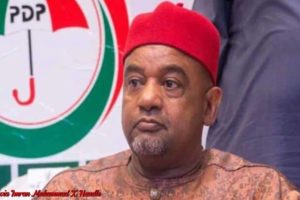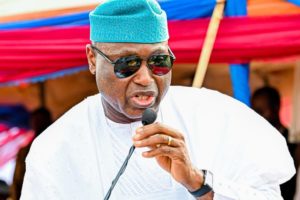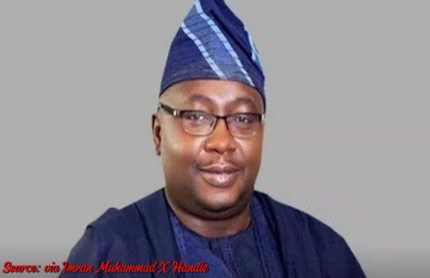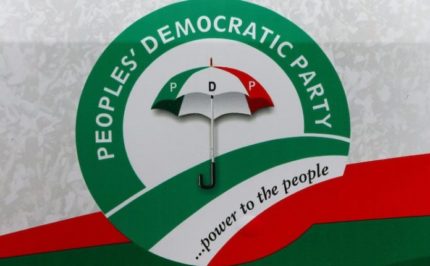The Minister of Power, Chief Adebayo Adelabu, has claimed that over 40% of Nigerians now enjoy at least 20 hours of electricity supply daily. He made this declaration on Sunday, attributing the improvement to revolutionary measures implemented by the federal government. According to Adebayo Adelabu, these steps were necessary to ensure that citizens experience more stable and regular electricity supply.
In a statement made available to a media company, Adebayo Adelabu credited President Bola Ahmed Tinubu’s administration for supporting the initiatives, which align with the “Renewed Hope” agenda aimed at revitalizing Nigeria’s economy. The Minister expressed confidence that these advances in power supply will further stimulate economic growth and enhance quality of life for millions of Nigerians.
Radical Government Measures Behind Electricity Supply Improvements
Adebayo Adelabu emphasized that the increase in electricity supply was a result of bold actions taken by the government. These measures included policy reforms and infrastructure upgrades, aimed at addressing long-standing inefficiencies in the Nigerian power sector. The removal of electricity subsidies earlier this year was cited as a crucial step in ensuring more consistent power delivery.
In April, the Nigerian Electricity Regulatory Commission (NERC) removed subsidies for over two million customers in Band A, which includes areas with high electricity demand. The decision was accompanied by an assurance from the government that customers in this category would receive a minimum of 20 hours of power supply daily. According to recent data, this promise is being fulfilled, with many regions reporting significant improvements in power availability.
Data Shows Steady Progress in Power Generation
Data from NERC for August 2024 indicates that Nigeria’s average power generation stood at 4,150 megawatts, marking steady progress in energy production. While this figure is below the country’s total installed capacity, it demonstrates a notable improvement from previous years. The Minister highlighted that these achievements were made despite various challenges faced by the power sector, including infrastructural deficits and inconsistent energy demand.
Adebayo Adelabu noted that efforts to boost power generation are ongoing, with additional projects and investments in the pipeline. The government is working closely with both public and private sector stakeholders to expand capacity and modernize the grid. These initiatives are expected to drive further increases in electricity supply in the coming months.
President Tinubu’s Support Key to Electricity Sector Reforms
Chief Adebayo Adelabu credited the success of recent electricity sector reforms to the unwavering support of President Bola Ahmed Tinubu. Under the “Renewed Hope” agenda, Tinubu’s administration has prioritized energy as a critical driver of economic transformation. The Minister remarked that Tinubu’s commitment to long-term solutions in the power sector has empowered the Ministry of Power to take bold steps in addressing the country’s energy challenges.
Adebayo Adelabu also praised the collaborative efforts between the Ministry of Power and other key governmental bodies, such as the Nigerian Electricity Regulatory Commission (NERC) and the Transmission Company of Nigeria (TCN). He emphasized that this united front has allowed the government to fast-track reforms aimed at delivering more consistent and reliable electricity to millions of households.
Electricity Subsidy Removal: A Bold and Necessary Step
The removal of electricity subsidies for millions of Nigerians in Band A has been a significant turning point in the country’s power sector reform journey. In April 2024, NERC eliminated these subsidies with the understanding that customers in Band A would receive a minimum of 20 hours of power daily. The government explained that the decision was necessary to address inefficiencies and to free up resources for infrastructure investment.
Despite initial public concern, the move appears to have paid off. Data from various regions show that many households in Band A are indeed enjoying up to 20 hours of uninterrupted electricity each day. Adelabu stressed that the subsidy removal has allowed the government to redirect funds toward improving power infrastructure and ensuring more reliable service across the board.
Expanding Access and Building a Resilient Power Sector
As Nigeria continues to grapple with electricity challenges, the Ministry of Power remains focused on expanding access to electricity for all citizens. Adebayo Adelabu outlined several ongoing projects aimed at modernizing the country’s power grid, improving transmission capacity, and increasing generation. These efforts are designed to address both urban and rural electricity needs, with a long-term goal of ensuring that all Nigerians have access to reliable and affordable power.
Looking ahead, the Minister expressed optimism that Nigeria’s power sector will continue to improve under the current administration. He reaffirmed the government’s commitment to delivering on its promises, while also calling for patience as long-term projects take shape. Adebayo Adelabu concluded by noting that with sustained investment and political will, Nigeria’s power sector has the potential to become a model for other African nations.
Table of Contents
Discover more from OGM News NG
Subscribe to get the latest posts sent to your email.














